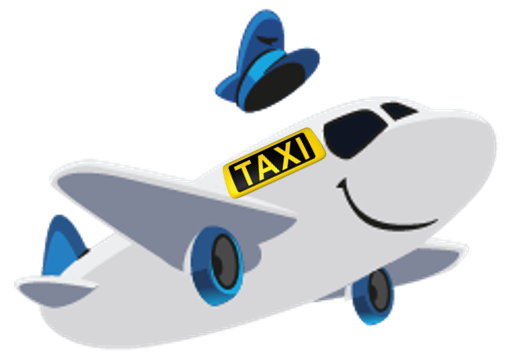
Capacity for hire: a simple and immediate solution to African airlines’ woes.
ACMI (aircraft, crew maintenance and insurance) leasing - also known as wet leasing or damp leasing, is common in Europe and an essential part in the early days of the Air Madagascar - Madagascar Airlines re-birth attempt. It could be a blueprint for other African airlines as they are striving to create a post-Covid, sustainable future for themselves.
As has already been widely documented, most African airlines have historically incurred financial losses, particularly on their intercontinental services. Yet they are often forced by their State shareholders, mostly for national pride or geopolitical reasons, to continue operating long haul to "fly the flag across continents", until cash simply runs out; Air Namibia, South African Airways or Air Madagascar are the latest examples.
It can't be denied that aviation is a catalyst for economic growth, especially in Africa where ground transportation is not always an option. Regular, dependable and affordable air services fuel trade, foreign direct investments and tourism flows, create jobs and earn hard currencies. But those benefits can't be a reason to fly empty aircraft all year long at a huge cost to the State coffers, when so many other uses of public funds should be prioritised (health, education, security amongst others).
Therefore, leasing ACMI capacity over temporary periods can be a solution to drastically improve local airlines' financial performance whilst achieving their political and economic mandate. The new Madagascar Airlines, for example, would:
1- Operate one single aircraft type for its own domestic and sub-continent operations to maximise quality and density of local services, achieve economies of scale, and pass the savings on to the passengers, so that local air travel becomes dependable and affordable,
2- Lease-in wide body capacity to maintain services on "strategic" routes (Paris in this case) but only during peak demand seasons, when those services are profitable. During the low season only the likes of Air France can fly profitably as they can count on the feeder power of their brand names, massive hubs and large corporate deals. Let major players fly year-round and step in “at will”, with no investment required, when commercial risks are low so that established players don’t overprice too much during the peak season. LAM Mozambique did a similar smart move last year when it operated seasonal services to Lisbon using a Europe-based ACMI operator.
Across Africa, this lease-in tool could also be used to test new route opportunities without investing on fleet development before having proved commercial efficiency. Unlike in other continents, historical traffic and fare data can be patchy or even misleading for African network planners; if the proof of the pudding is in the eating, then ACMI lease-in is a convenient pill to avoid an indigestion.
On top of that, African markets are a notoriously fickle and unpredictable. ACMI lease-in enables African operators to start services promptly and seize opportunities as they emerge, without having to wait for the typical long lead times of new aircraft deliveries. All too often, aircraft purchase decisions are excessively driven by shorter delivery lead times, leading to inadequate and extremely expensive fleet decisions over the long term.
One could easily imagine wide bodies linking Harare, Gaborone or Lusaka to London, Windhoek to Frankfurt or Amsterdam, generating profits for African airlines while fuelling economic growth and ensuring that competitive fares are maintained on long haul markets through fruitful competition during peak seasons, hence saving money of all African stakeholders: the diaspora, the flag carrier and eventually the local State.
Such an approach is already a standard amongst Maghreb flag carriers (Royal Air Maroc, Air Algérie, Tunisair) who, with the support of Avico, usually deploy narrow body aircraft to dramatically increase their European network during summer, and then wide bodies to enable massive pilgrimages to Saudi Arabia. Sub-Saharan carriers should follow the same path to improve their profitability.
AVICO, as the leading ACMI broker in Europe, has been setting up hundreds of win-win deals between airlines, all around the world, for more than 25 years. We are looking forward to helping African airlines cooperate to re-emerge smarter - and financially healthier - from this crisis, and generate significant savings and increased accessibility for Africa.
Founder and CEO @ AviaDev Africa | Podcaster | Visiting Professor| Events professional | LinkedIn coach | Running coach 🏃♂️
2yWe took a deep dive in the latest AviaDev africa podcast https://aviadevinsight.libsyn.com/episode-189-sylvain-bosc-ceo-avico-acmi-in-africa-a-simple-and-immediate-solution-to-african-airlines-woes
Strategic Business Consultant
2yVery useful
VP, Business Development – Americas. Glasgow Prestwick Airport. Working throughout the America’s, identifying/developing cargo, passenger and ancillary business opportunities for Glasgow Prestwick Airport, Scotland.
2yHi there Sylvain! Congratulations on the new role! Excellent post reflecting both the realities and opportunities for African airlines.
Foreign Operator Permit Specialist
2yVery good Article, Sylvain. One would also need to factor in, that some African States have regulations relating to the time period that a carrier can wet lease in, a Foreign Registered Aircraft, e.g. SA, max of 6 months within a 12 month period.